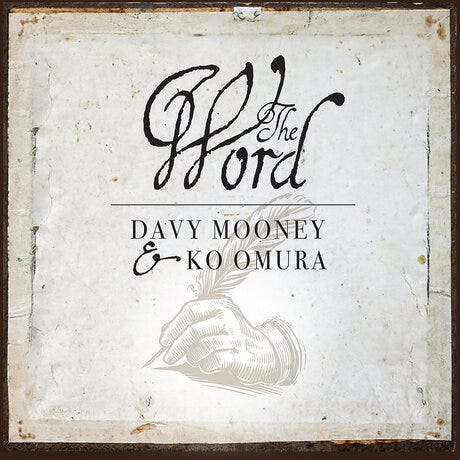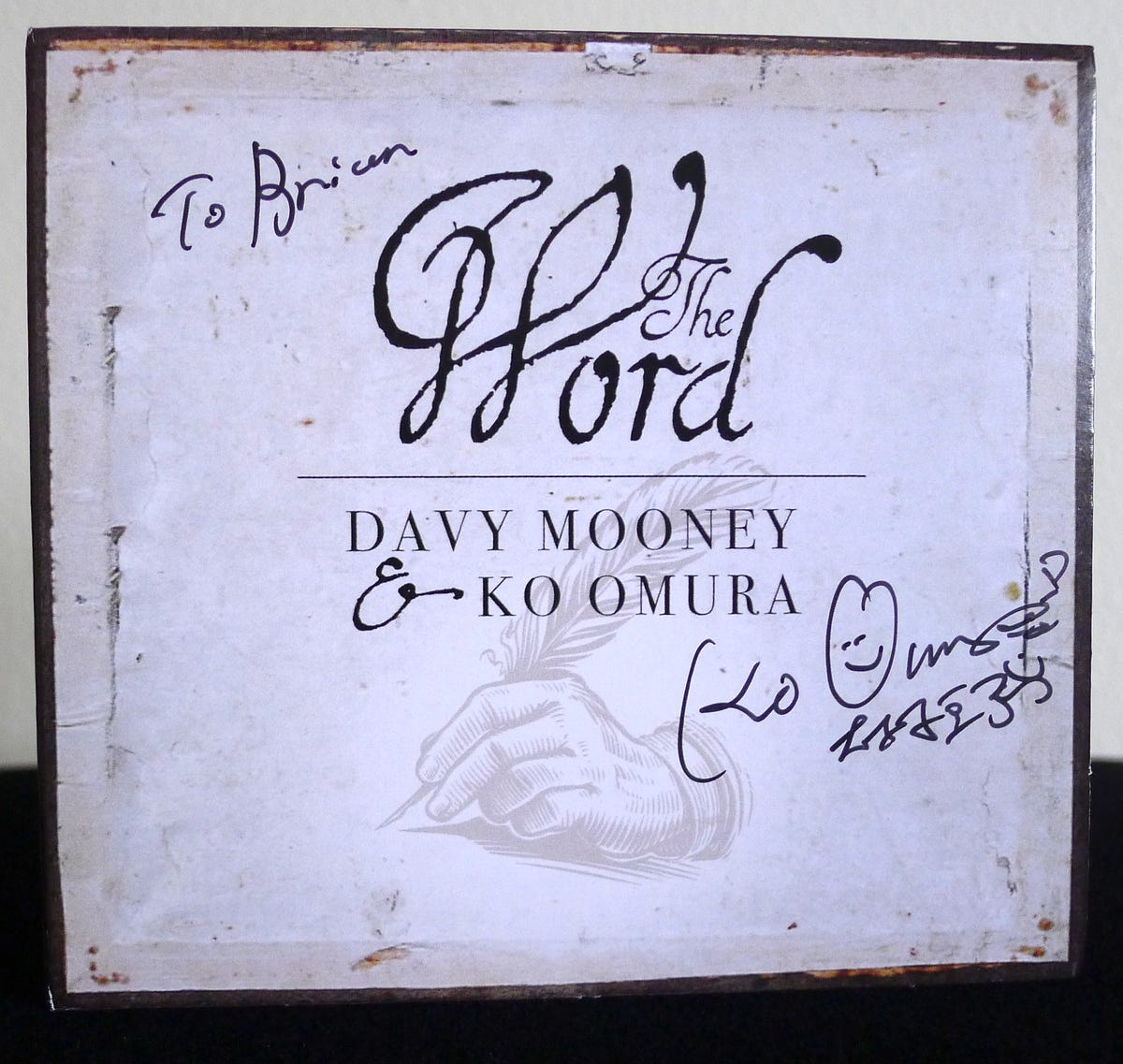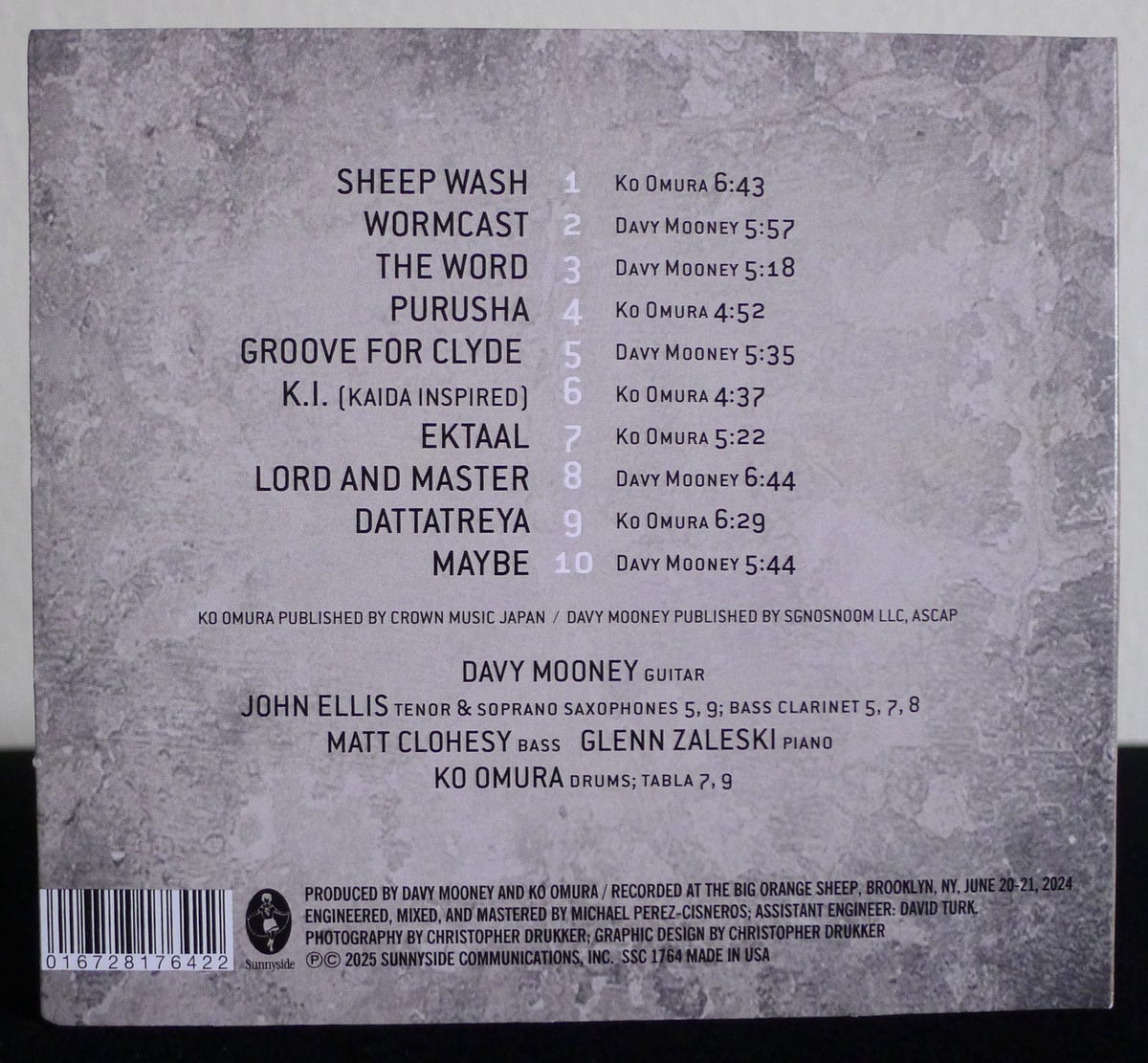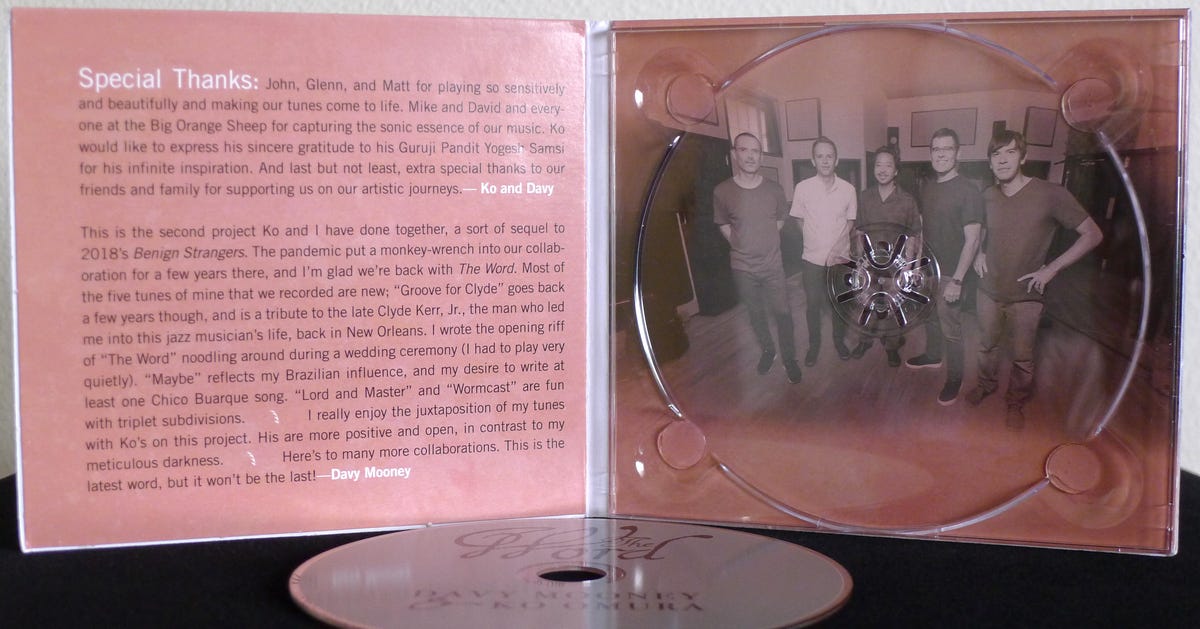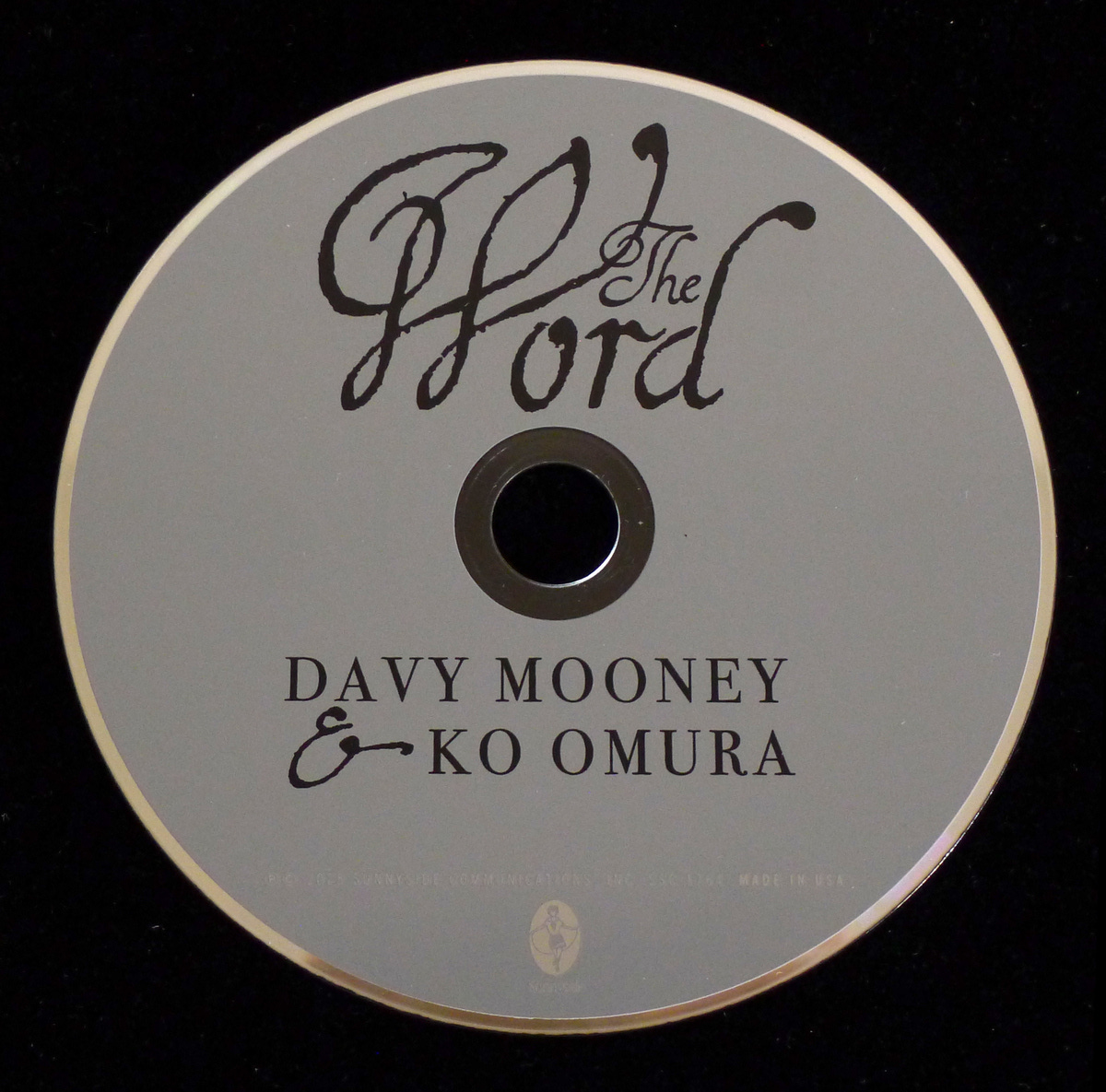Davy Mooney & Ko Omura: The Word
The Word (2025) is the second collaboration album from guitarist Davy Mooney and drummer Ko Omura. As with their previous release Benign Strangers (2018), each leader contributes five original songs to the album, interspersed in sequence. The music is played by the same quintet of Mooney on guitar, Omura on drums and tabla, John Ellis on saxes and bass clarinet, Glenn Zaleski on piano, and Matt Clohesy on bass.
From first track, Omura’s “Sheep Wash”, you can immediately sense the great balance of dynamic energy and relaxed sweetness. The song’s bright swing and memorable melody initially seems simple but contains the subtle complexity of unexpected turns and rhythmic shifts. These qualities are found in all the superb writing and playing from Omura and Mooney, and the songs end up being finely crafted realizations of straight singable melodies that also act as reference ground for solo improvisations. While Omura plays drums on this first track, his devoted study to Indian tabla and music seem to be ingrained in his musical thinking as well, more so when he plays tabla and picks titles from Sanskrit words and concepts. (A different version of Omura’s “Sheep Wash” can be heard on Fe: Live at Virtuoso.)
While co-leaders Mooney and Omura showcase guitar and drums respectively and write all the music, solos from the other musicians on sax, piano, and bass are also highlighted. The sound and playing of these members’ improvised solos are rounded more than acute, pervading more than intruding, and elevate the entire group to a higher level. Mooney’s electric guitar sound in particular is pure warmth and glows with the clear sound of strings and wood as he channels his introspective ideas fluidly with an easy confidence through his fingers.
On track #2, Mooney’s “Wormcast” thickly threads an earworm melody through a modified blues, crawling up and down a repeated riff of mellow hopscotching harmony chords.
“The Word” (track #3) is also one of Mooney’s, where sliding guitar arpeggios and chords providing another back-and-forth harmonic backdrop for curious melodies to unfold and stimulate with a tinge of blues and groove.
Omura’s “Purusha” (#4) is next, a front-pushing astral journey, suspended with brief drum pauses transformed to a steadiness to keep attention pinned, looking to the adventure ahead as the melody searches for and leads the way forward over the cliffhanging music.
Track #5 is “Groove for Clyde” from Mooney, where John Ellis’ heavy bass clarinet riff locks down a deep groove to steady the polyrhythmic cycles, all producing the effect of a floating-yet-grounded contradiction for heightened interest.
#6 is “K.I. (Kaida Inspired)” from Omura, and it starts with an abstract chain, a single note pattern that quickly turns into a rhythmically intricate lattice of melody, drums, engaging chords, and wide-spanning solos.
This is another great example of how Mooney and Omura’s complex rhythms and repeated riffs are alive with interesting structures that are fine-tuned to gently challenge listeners without confusing them. In their music, crafted rhythms inhabit a large part of the musical structure and increase the creativity of each improvisers’ ad-libbed solos.
Track #7 is Omura’s “Ektaal”, where a repeated riff and tabla drums are surrounded by shakers, and delicate notes from the bass clarinet, piano, bass, and guitar. Ambient touches develop slowly as tabla becomes brushed drums, and the solos fade into and out of a lush background texture.
“Lord is Master” (#8) is from Mooney, where a deep hook of a bass clarinet riff and solid drum playing balance a difficult rhythmic construction for the most down-and-groovy style on the album.
Tabla returns on #9 “Dattatreya” from Omura, where open ambiance and free jamming gel into a intricate puzzle-box of an arranged-but-flexible medium tempo composition. This is perhaps the most striking take on the album, like a signal originating from the universe of Wayne Shorter.
The final track is Mooney’s “Maybe” (#10), a softly swaying tune with rich harmonies played in a comfortable bossa nova style with excellent improv spotlights, light brushes, and dashing drums for a lingering pleasant memory.
Liner Notes
(Excerpt of Davy Mooney’s words from the CD liner notes.)
This is the second project Ko and I have done together, a sort of sequel to 2018’s Benign Strangers. The pandemic put a monkey-wrench into our collaboration for a few years there, and I’m glad we’re back with The Word. Most of the five tunes of mine that we recorded are new; “Groove for Clyde” goes back a few years though, and is a tribute to the late Clyde Kerr, Jr., the man who led me into this jazz musician’s life, back in New Orleans. I wrote the opening riff of “The Word” noodling around during a wedding ceremony (I had to play very quietly). “Maybe” reflects my Brazilian influence, and my desire to write at least one Chico Buarque song. “Lord and Master” and “Wormcast” are fun with triplet subdivisions. 🪶 I really enjoy the juxtapositions of my tunes with Ko’s on this project. His are more positive and open, in contrast to my meticulous darkness. 🪶 Here’s to many more collaborations. This is the latest word, but it won’t be the last! — Davy Mooney
More album notes and song explanations for The Word are available on Mooney’s Bandcamp page for this album.
The Word by Davy Mooney & Ko Omura
Davy Mooney - guitar
Ko Omura - drums, tabla (#7, 9)
John Ellis - tenor & soprano saxophones (#5, 9); bass clarinet (#5, 7, 8)
Glenn Zaleski - piano
Matt Clohesy - bass
Released in 2025 on Sunnyside Communications as SSC-1764.
Japanese names: 大村亘 Omura Ko
Related Albums
Audio and Video
“Groove for Clyde” (track #5) — excerpt:


